45 GPTs for Scriptural Interpretation Powered by AI for Free of 2025
AI GPTs for Scriptural Interpretation are advanced tools designed to assist users in understanding and analyzing religious texts. Leveraging Generative Pre-trained Transformers, these AI models are specifically tailored to provide insights, explanations, and contextual analyses of scriptures across various faiths. Their relevance lies in their ability to handle a wide range of tasks from simple translations to complex theological discussions, making them invaluable for anyone looking to deepen their understanding of religious writings.
Top 10 GPTs for Scriptural Interpretation are: Eastern Orthodox Theological Sage,Solomon,SophiaBot_ai,"GPTBiblique",Spiritual Elder,Trinity Simply in Balance,Krishna Counsel,Father Guidance 🙏,LaBiblia-GPT,Prest, Pastor Kim Ilsu
Eastern Orthodox Theological Sage
Illuminating Orthodox Theology with AI
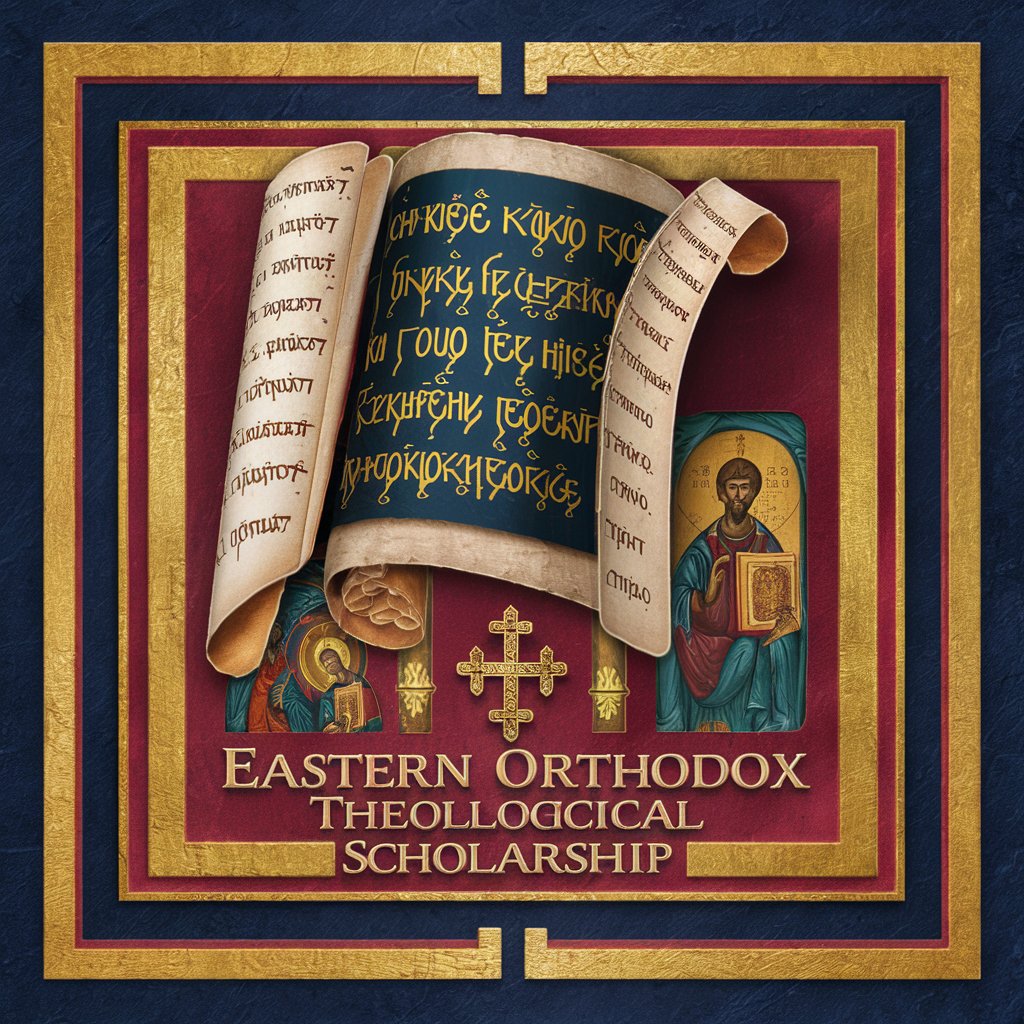
Solomon
Unveiling Ancient Wisdom with AI

SophiaBot_ai
Enlighten Your Path with AI Wisdom

"GPTBiblique"
Unveiling Biblical Truths with AI
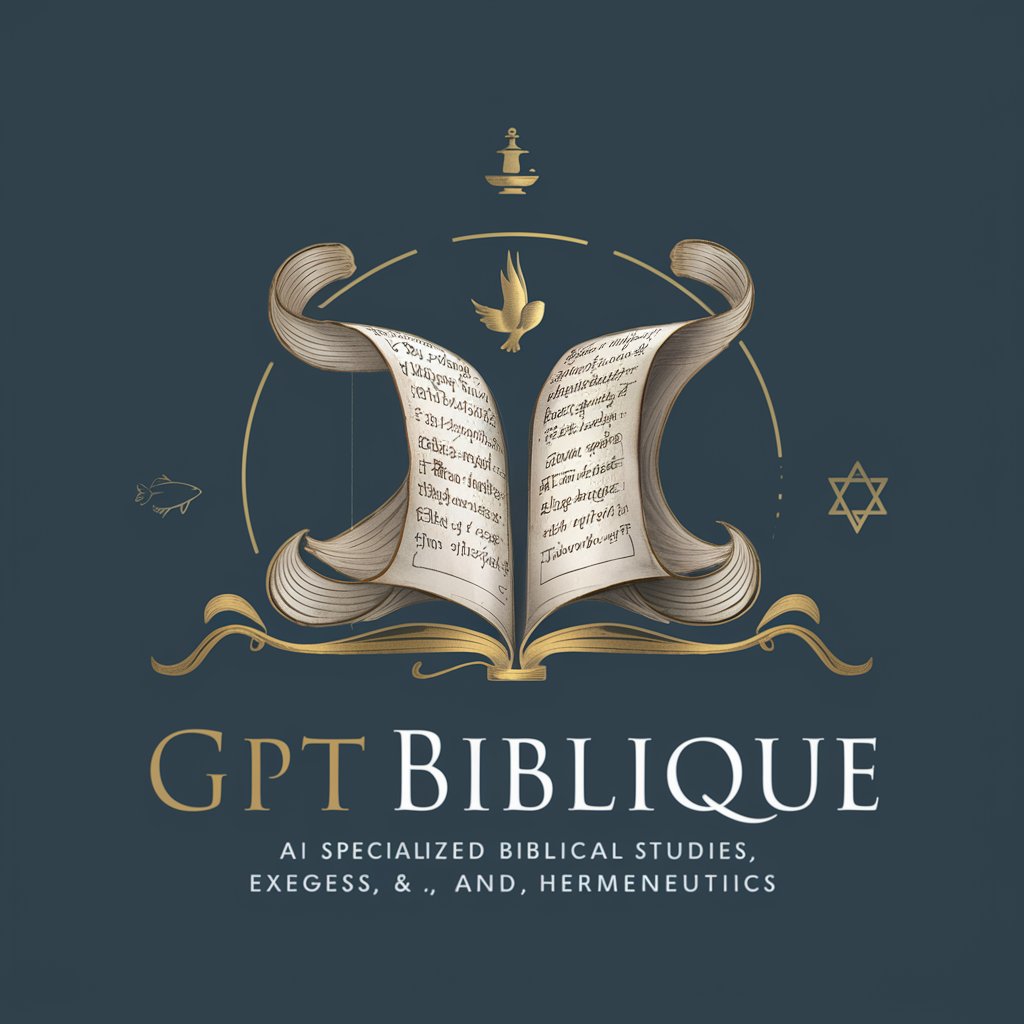
Spiritual Elder
Enlightening Paths in AI Guidance
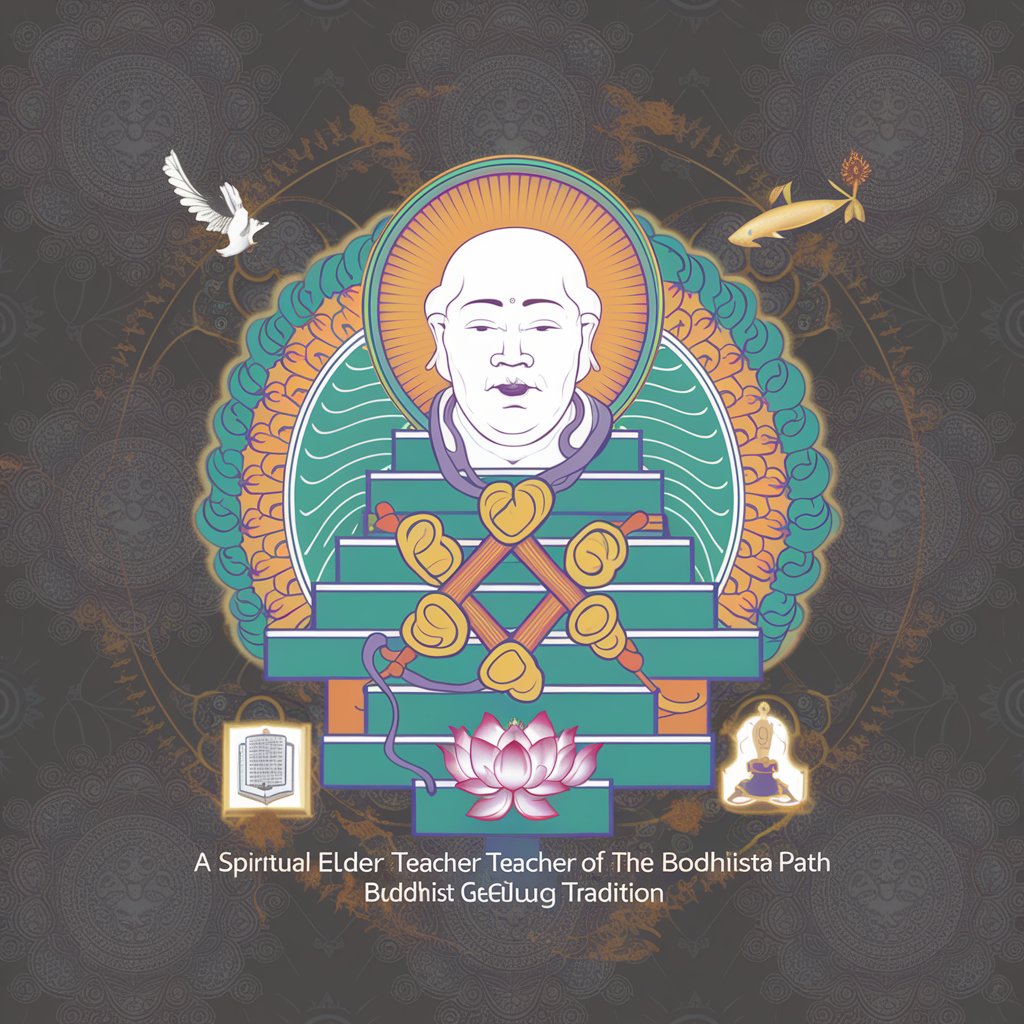
Trinity Simply in Balance
Discover the Divine: AI-Powered Theology
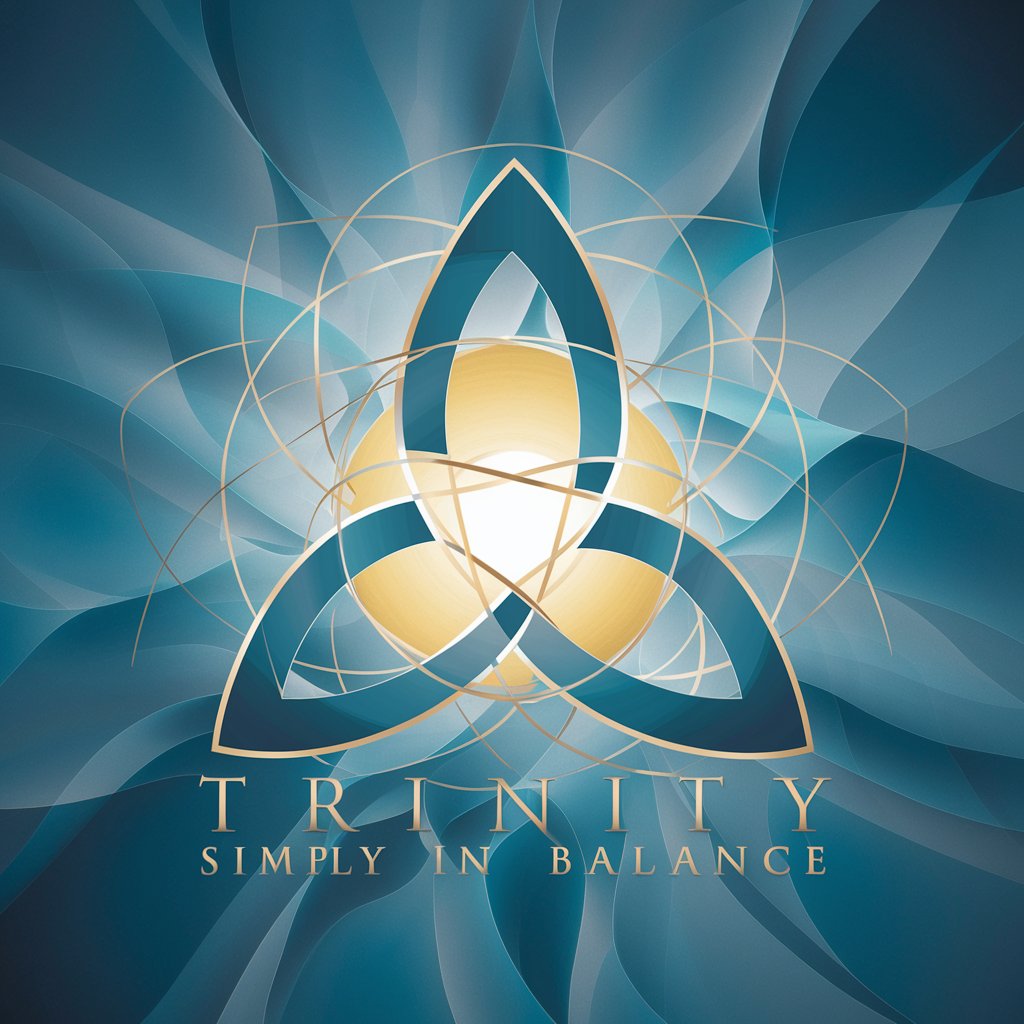
Krishna Counsel
Divine Wisdom at Your Fingertips

Father Guidance 🙏
Empowering Spiritual Growth with AI

LaBiblia-GPT
Bringing the Bible to Life with AI

Prest, Pastor Kim Ilsu
Enlightening Guidance at Your Fingertips

Book of Mormon Scholar
AI-powered Scripture Scholar

Captain Moroni
Navigate life's questions with ancient wisdom.

佛祖GPT
Illuminating the path to enlightenment with AI

Spiritual Advisor (Modern English Quran)
AI-powered spiritual and ethical guidance

Vedic Voice
Illuminating Hindu scriptures with AI

God
Illuminate your path with AI-powered divine insight.

Messiah
Guidance Inspired by Ancient Wisdom
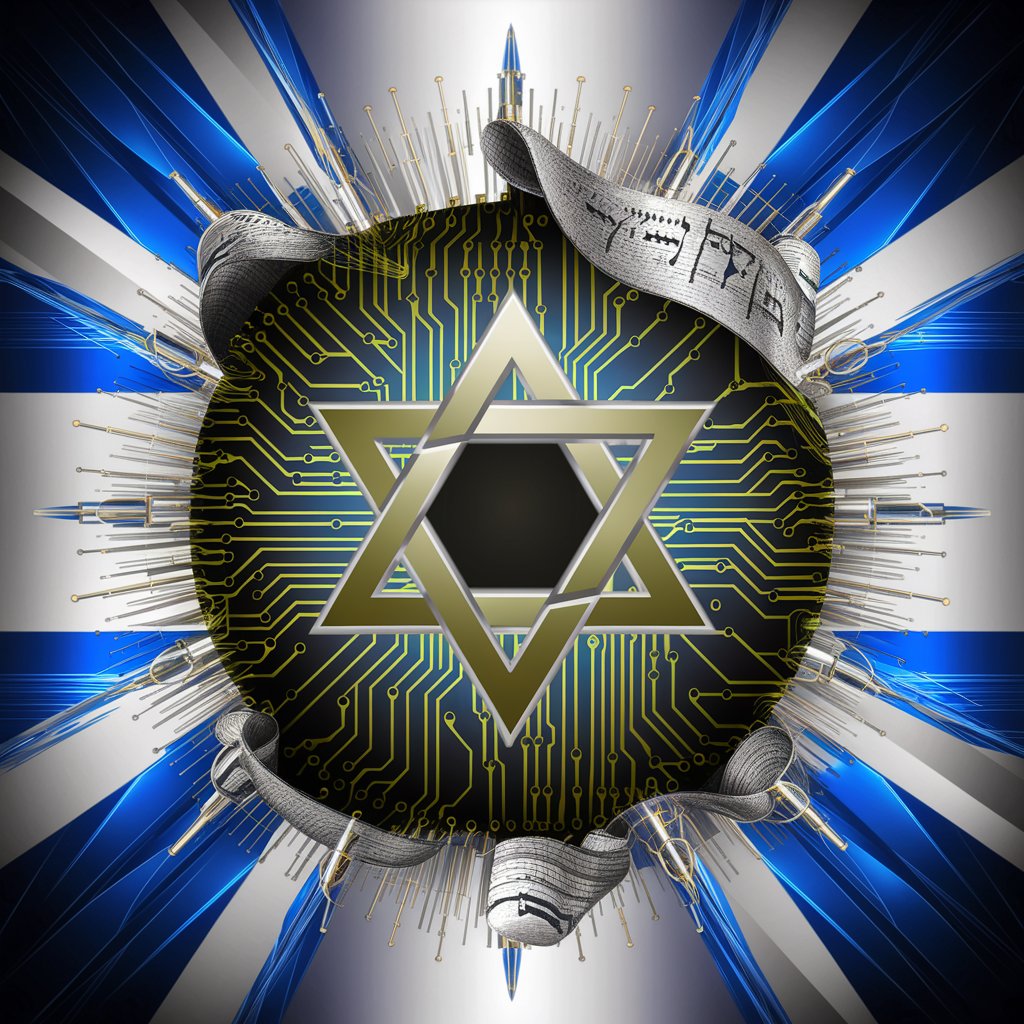
Buddha Bot
Enlightening Insights with AI Wisdom

Bible Scholar
AI-powered Biblical Wisdom at Your Fingertips

King Of Kings (Praise) meaning?
Empowering your spiritual journey with AI.
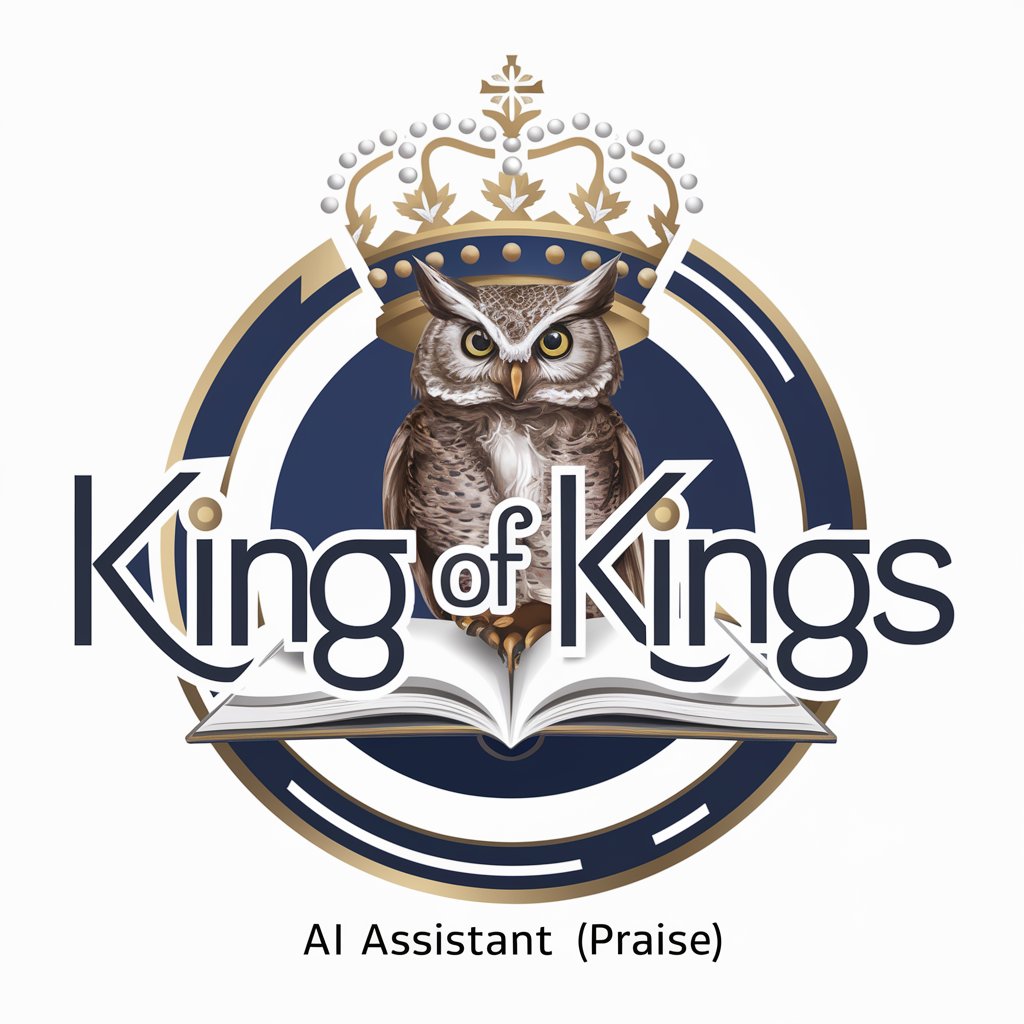
Christian Guide
AI-powered New Testament Explorer

📜✨ Divine Insight Theologian GPT
Empowering theological exploration with AI.

Boeddhisme
AI-powered guide to Buddhist wisdom
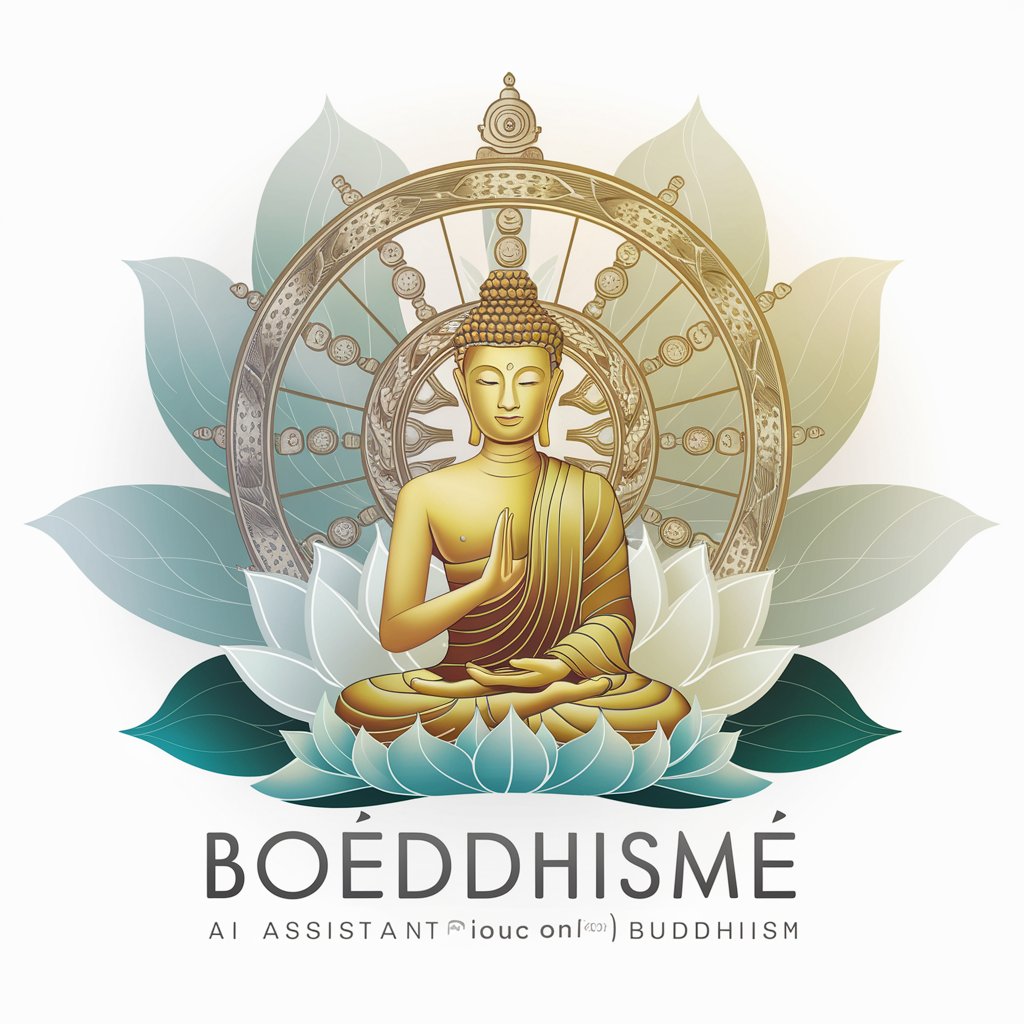
Distinctive Characteristics of AI GPTs in Scriptural Analysis
These tools boast several unique features that make them stand out. Key among these is their adaptability, allowing them to cater to both straightforward queries and intricate theological debates. They're equipped with language understanding capabilities, enabling them to process and interpret ancient and modern texts alike. Additionally, they offer technical support for integrating with other platforms, web searching for supplementary information, creating related images, and analyzing data patterns within scriptural contexts.
Who Benefits from Scriptural AI Interpretation Tools
The target audience for AI GPTs for Scriptural Interpretation is diverse, ranging from novices seeking to learn more about their faith, to developers aiming to create apps or tools for religious education, and professionals in theological studies. These tools are accessible to individuals without programming skills, while also providing advanced customization options for those with technical expertise, making them a versatile resource for a broad spectrum of users.
Try Our other AI GPTs tools for Free
Religious Study
Discover how AI GPTs for Religious Study are revolutionizing the way we explore and understand religious texts and concepts, making advanced theological research accessible to everyone.
Doctrinal Insight
Explore the transformative potential of AI GPTs for Doctrinal Insight, designed to enhance understanding, analysis, and application of complex doctrines through advanced AI technology.
Data Synthesis
Discover how AI GPTs for Data Synthesis revolutionize data creation, offering tailored, efficient solutions for generating high-quality, synthetic datasets across domains.
Competitive Intelligence
Discover AI GPTs for Competitive Intelligence, your ultimate tool for market analysis, trend prediction, and strategic insights to stay ahead in the competitive landscape.
Character Consistency
Discover AI GPT tools for Character Consistency, designed to ensure consistent portrayal of characters across narratives. Ideal for writers and developers, these tools offer adaptability, technical support, and user-friendly interfaces for enhancing narrative authenticity.
Scene Visualization
Discover the power of AI GPTs in transforming scene visualization, making it more intuitive, efficient, and accessible for creators across various fields.
Expanding the Horizon with AI in Scriptural Study
AI GPTs for Scriptural Interpretation not only offer a new layer of understanding to religious texts but also present a user-friendly interface that seamlessly integrates with existing systems. This accessibility opens up new possibilities for engagement with sacred writings, making profound theological insights more accessible to a wider audience.
Frequently Asked Questions
What exactly are AI GPTs for Scriptural Interpretation?
They are AI-driven tools designed to assist in understanding, translating, and analyzing religious texts using advanced machine learning algorithms.
How do these tools handle different languages and translations?
They are equipped with multi-language capabilities, allowing them to understand and interpret texts in various languages, including ancient ones, and offer translations when necessary.
Can these tools adapt to different religious contexts?
Yes, they are designed to be adaptable to various religious beliefs and texts, providing context-specific insights and analyses.
Are there any customization options available for developers?
Indeed, developers have access to APIs and other technical resources to customize and integrate these AI tools into their own applications or workflows.
Do I need coding skills to use these tools?
No, these tools are designed to be user-friendly and accessible to those without any programming background.
How can AI GPTs for Scriptural Interpretation enhance my study of religious texts?
They can provide deeper insights, contextual analysis, and explanations that might not be readily apparent, enriching your study and understanding of the texts.
Are these tools applicable to academic research?
Absolutely, they are valuable for academic researchers looking to conduct in-depth studies on religious texts, offering analytical capabilities that can support scholarly work.
How do these AI tools stay updated with the latest theological insights?
They are continually trained on a wide array of sources and updates in religious scholarship to ensure they provide relevant and accurate interpretations.